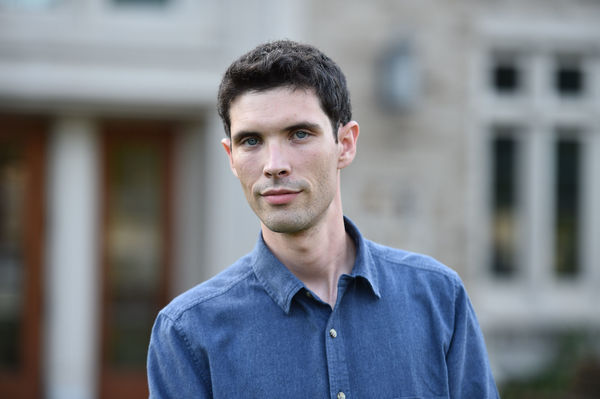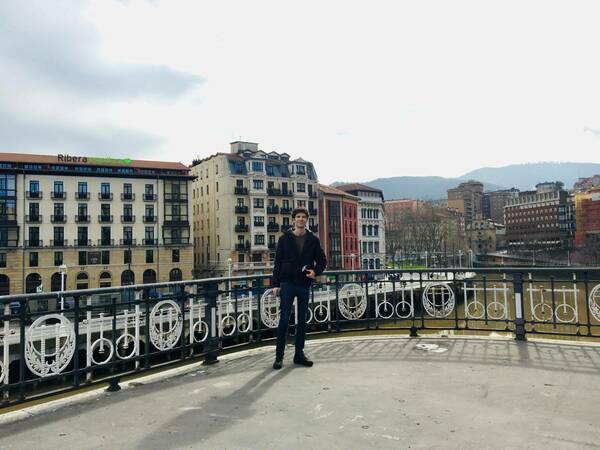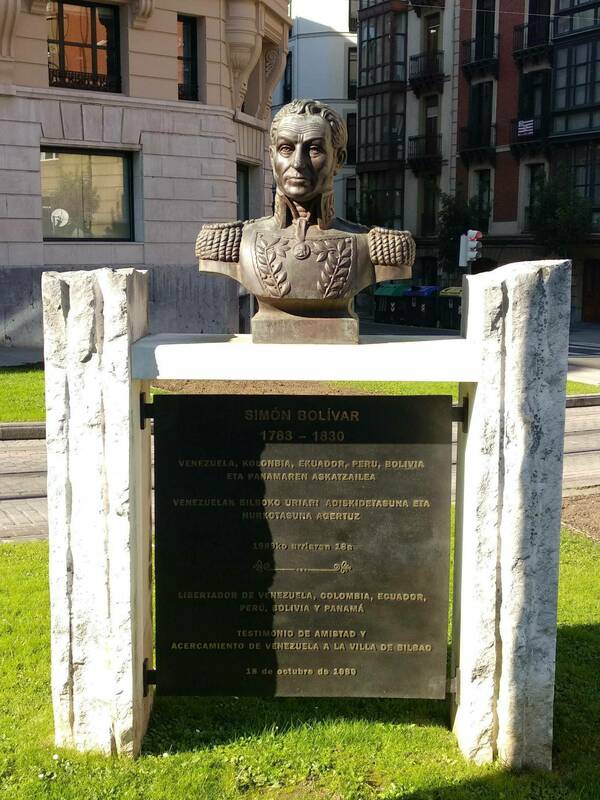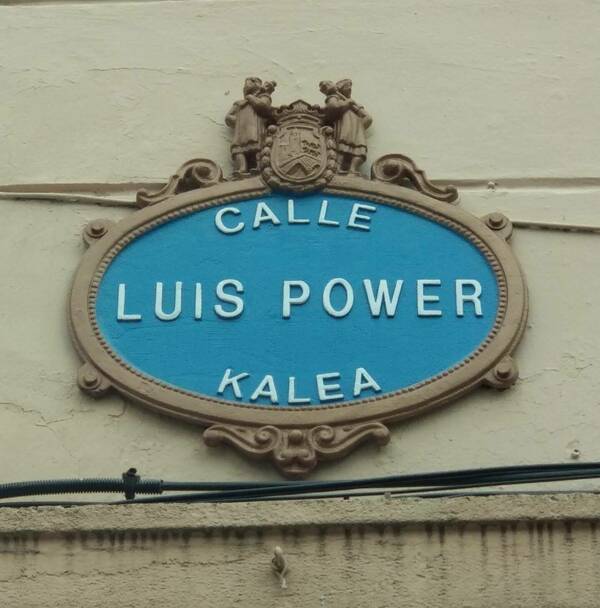
José Brownrigg-Gleeson Martínez is a historian educated at the University of Salamanca in Spain, where he was a founding member of Indusal, the university’s research group on Latin American independence. His chief research interest is exploring the role the Hispanic world played in shaping Irish attitudes towards colonialism, empire, and modernity during the first half of the nineteenth century. With a decidedly transnational approach, he has highlighted the multiple and often divergent readings of the crisis of the Hispanic Atlantic which developed simultaneously in post-Union Ireland and among United Irish exiles in the United States.
Dr. Brownrigg-Gleeson was the Keough-Naughton Institute’s National Endowment for the Humanities Fellow in the 2017-2018 academic year. During his time at Notre Dame, he extended the chronological scope of his work to examine how Irish American images of the new Latin American republics evolved in the decades leading up to the Mexican-American War (1846-48). Drawing on his previous research into the contacts between South American patriots and United Irish exiles in New York, Philadelphia, and Baltimore, he worked to reconstruct the networks of Irish American book publishers, newspaper editors, and translators who created and/or circulated images of the Spanish-speaking New World throughout Irish communities in the Atlantic.
At a conference in Santiago Chile co-sponsored by the Institute in December 2018 on the Irish in Latin America, Dr. Brownrigg-Gleeson both presented a paper and served as the translator/moderator for a second session.
When the pandemic began, he was an Irish Research Council-funded postdoctoral fellow at the Moore Institute for the Humanities and Social Sciences at the National University of Ireland Galway but away from Ireland doing research. After spending the first months of the pandemic in Bilbao, he wrote a piece for RTE Brainstorm, republished on the Institute’s website, on Report from Spain: The Strictest Lockdown in Europe/Societal Changes Ahead.

Most recently, Dr. Brownrigg-Gleeson is the co-author of the articles "Fighting Someone Else's Wars? Italian and Irish Soldiers, Adventurers and Mercenaries in the New World, 1776–1786" in the book Atlantic Crossroads: Webs of Migration, Culture and Politics between Europe, Africa and the Americas, 1800–2020, José C. Moya, editor (Routledge, 2021); and “Spanish ‘Colonies’: A Term Forged in the Hispanic-Anglosphere” in the book The Hispanic Anglosphere from the Eighteenth to the Twentieth Century, Graciela Iglesias-Rogers, editor (Routledge, 2021).
From Bilbao, he answers our Three Questions:
What are you working on?
I’m currently preparing two articles. With the first, I want to illustrate how news about the independence revolutions that shook Latin America in the early 19th century travelled across the “Irishphere”. Work in this area tends to concentrate on the Irish who fought in the wars of independence, but I would argue that there is also an important point to be made about the role of the Hispanic world in the circulation of counterrevolutionary discourse and ideas among Irish communities, both at home and abroad. I am particularly interested in the reactions of Irish groups in Spanish America who owed much of their socio-economic standing precisely to the imperial structure of the Hispanic Monarchy, and for whom revolution represented a tangible threat.
The other paper that I am beginning to develop has more of an economic focus, and was prompted by some primary sources I came across just before the first lockdown last year which showed the frantic efforts of an Irish-born enslaver to move his chattel—enslaved people—from Spanish dominions to the British Caribbean. This got me thinking about many aspects. For example, I am now building a combined database of the enslaved and their Irish enslavers in selected locations across Spanish North America, and documenting the instances in which commodities produced in those places by the labor of enslaved people ended up in Ireland. I think that it is time we stopped looking at the contacts between Ireland and Latin America in this period almost solely through the eyes of a few “heroic” men who are presumed to have acted on revolutionary and anticolonial principles. Instead, it seems to me that we should be searching much more actively for the submerged voices of the many non-white, non-male, and non-Anglophone Irish in the region. And of course, now that international travel (at least in Europe) is again possible, I hope to start filling the archival gaps in my book manuscript!

What are you reading?
My focus at the moment is on everything to do with counterrevolution. I am learning a lot from Cosmopolitan Conservatisms: Countering Revolution in Transnational Networks, Ideas, and Movements (c. 1700–1930), a collection of essays edited by Matthijs Lok, Friedemann Pestel and Juliette Reboul. In the 1820s correspondence of some Irish merchants that I keep going back to there is clear interest in the revolutionary context of Greece and Italy, so it seemed right to finally get around to Konstantina Zanou’s brilliant Transnational Patriotism in the Mediterranean, 1800–1850. I am eager to receive Marcela Ternavasio’s very recent Los juegos de la política. Las independencias hispanoamericanas frente a la contrarrevolución and excited also about a volume on republicanism in the Iberian context just published by the Casa de Velázquez in Madrid. On the Irish side, I am truly enjoying David Dickson’s masterful and entertaining The First Irish Cities, and have just finished Patrick J. Mahoney’s translation of the prose writings of Eoin Ua Cathail, Recovering an Irish Voice from the American Frontier.
I am rather ashamed to confess that I am not reading anything “for pleasure” just now. My father, who is an avid reader and knows my tastes, recently gave me Abraham Guerrero Tenorio’s poetry collection Toda la violencia as a gift, but it is sitting on the bedside table more as sign of intent than anything else.
What lessons or insights from the pandemic are you taking forward?
When I took up my current postdoc fellowship in Galway in October 2019, I had spent ten consecutive years beginning the academic year in a different country to the one before. It may sound clichéd, but the pandemic gave me time to reevaluate my priorities. As every other Early Career Researcher, I am still driven by the fear of the uncertain periods in between jobs, but I am learning to control the impulse to apply for fellowships without thinking twice about the possible outcomes. Spending more time with family than I had in years has made me realize what I had been missing, and I now feel much more comfortable about narrowing the geographic scope of future job searches.
In a strictly professional sense, I have really enjoyed the shake-up in terms of dissemination and networking caused by the pandemic. There is an academic conference circuit —with prohibitive registration fees, the need for travel visas, etc.— which has always been out of reach for the vast majority of academics from the so-called “Global South.” We are all tired of Zoom conferences to some degree by this point, but it has been a real treat to be able to drop in on events across Latin America (without increasing my carbon footprint) and to be exposed to cutting-edge work which, often due to the dominance of the English language, is not given a visible platform in Europe and North America. I would like to see this continue into the future.
